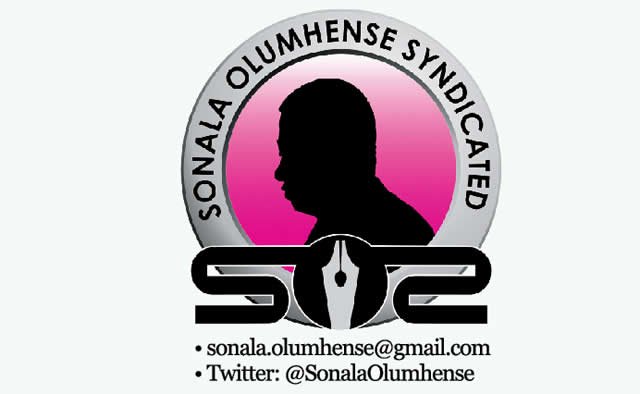
Abba Kyari, a suspended Nigeria Deputy Commissioner of Police, appears to be heading to the United States, no visa required, as Nigeria finally surrenders to that country’s extradition squeeze.
It could have been no less embarrassing. Kyari was no ordinary cop, according to the legend he was the “Super Cop.” But he may have been far more crook than cop: the allegations against him in the US include wire fraud, money laundering and aggravated identity theft.
The case of the suspended “Super Creep” became even more embarrassing glocally in mid-February when it was discovered that even as his extradition request was being processed, he was being arrested by the National Drug Law Enforcement Agency for an offence. An agency video, which went viral, appeared to show him negotiating a drug deal.
In an ongoing case, Isa Ali Pantami, Buhari’s cabinet minister, who had previously been exposed as a hypocritical terrorist-sympathizer, was also denounced by the Academic Staff Union of Universities for something Pantami had claimed to be a “promotion” to professor by the Federal University of Technology, Owerri.
In general, a promotion normally implies that the beneficiary has been serving in a lower capacity in the same institution and is being elevated—within the applicable regulations—as a reward for hard work or additional training.
But Pantami was on the staff of the Federal Government, not in a university let alone one in Owerri. He did not know FUTO. Had never studied there. Never taught there. Never undertaken any research there. Never written his name on a fig leaf there, let alone on a sheet of paper. Probably never even visited the place.
But he had somehow contrived to be “promoted” to professor by FUTO, breaking all the laws of time and space to somehow hold two full-time jobs for two different employers in two places.
And he appeared to have had no qualms about it. In the Buhari era, such quackery has become standard.
Think about it: apart from the obvious and colossal economic loss every year, exactly what do the hours of sitting in traffic in Nigerian cities mean?
I am not talking about the human suffering, which, to governments which have failed to do enough about it, is a contradiction in terms. I mean: if you must sit in traffic and suffer, they seem to imply that that is your problem.
But what if you are sitting in traffic that is not moving at all, such as on a petrol queue about one mile from a fuel station which does not even have a drop of fuel, in the hope that someday soon, it will receive supplies that will still be available when it is your turn?
In Nigeria, as another petrol shortage hits the nation, that is the current state of play: horrendous stretches of motor vehicles and fuel cans in the blazing sun in the cities—and sometimes at night—as Nigerians hope and pray and fight for a few gallons of the precious stuff.
Each of those stations features not just the long lines of motor vehicles but also a long assembly of jerry cans that pedestrians use to purchase petrol that they then re-sell nearby at exorbitant prices.
One of the ironies is that motorists who obtain this petrol are often compelled to squander it in traffic. They then find themselves at the back of another long petrol line somewhere else, hoping for yet another miracle.
But where, in all this, is President Muhammadu Buhari?
About this time seven years ago, candidate Buhari was crisscrossing the landscape, proudly declaring how he would “change” Nigeria. When it came to President Goodluck Jonathan, for instance, the All Progressives Congress hopeful routinely assailed the existence of the presidential fleet, swearing he would travel commercially if elected.
It may look like a joke now, but at a meeting with Nigerians in the United Kingdom, he is remembered for asking, “What is the difference between me and those who elected us to represent them?”
Answering his own question, Buhari said, “Absolutely nothing! Why should [the] Nigerian President not fly with [the] Nigerian public?”
He swore he would bring Nigerian Airways. “We shall do this by bringing all the aircraft in the presidential fleet into the Nigerian Airways and within a year increase the fleet to about 20,” Buhari said.
Of course, he also swore he would never embark on medical tourism, saying he would make Nigerian hospitals “functional” and thereby protect public funds.
As Nigeria reels from problems that have either multiplied or been nurtured under Buhari’s watch, it is not difficult to think of him in Dr Jekyll and Mr Hyde terms, or to consider that our predicament is due as much to his malice as to his incompetence.
But what about the present, as “Mr Integrity” returns to London, in one of the jets he swore to sell or send into Nigeria Airways, to continue to squander on himself the scarce public funds he swore he would preserve? Is he smiling in pleasure, idly picking his teeth in front of the television, or is he in conceivably embarrassed?
As Buhari and his entourage enjoy life in London for another two weeks, paid for by Nigeria’s poor, the deprived and the cheated, ignoring the chaos at home and the warning signs of a country in the last stages of decay, his wife is in Dubai: rebellious, resentful, and removed, their seven years in control a lesson in exploitation.
In their absence, one man bidding to replace them in Aso Rock and make Nigeria into Lagos State continues to sow quotations.
Bola Tinubu, 80 going 70, has said, among others, “No amount of intimidation can stop me. I am ready to get dirty. I am out to become President of Nigeria.”
And: “[Buhari] will soon finish his tenure. I am saying they should not just leave the post; they should hand it over to me.”
And: “My driving vision is the transformation of this nation into a robust decentralised democracy…a nation founded on justice…a Nigeria that is for all Nigerians.”
We once believed rhetoric such as this, to our detriment. For our infantile faith in his words, Buhari has spent his two terms practically insulting all those who voted for him. In place of merit and achievement, his has emerged as an era of fakery and duplicity and certificate marketers and character forgers such as Kyari and Pantami.
Tinubu’s Nigeria, should he have his way, would be infinitely worse. In Lagos State, he has demonstrated his concept of “robust democracy” to mean one-man-only-vote where that man’s name is his.
As I have written previously, I am willing to grant him the benefit of the conversation if he publicly renounces his anti-democratic behavior in Lagos since he left office as governor in 2006, and discloses the source of his wealth. That is democracy, and it would be even more so when we invoke the concept of justice.
Otherwise, Tinubu is a mistake Nigerians must resoundingly reject and refuse to add to Buhari.Whatever his image-makers write for him to say, Nigeria cannot be returned to a foreign hospital bed.
Copyright PUNCH.
All rights reserved. This material, and other digital content on this website, may not be reproduced, published, broadcast, rewritten or redistributed in whole or in part without prior express written permission from PUNCH.
Contact: [email protected]





